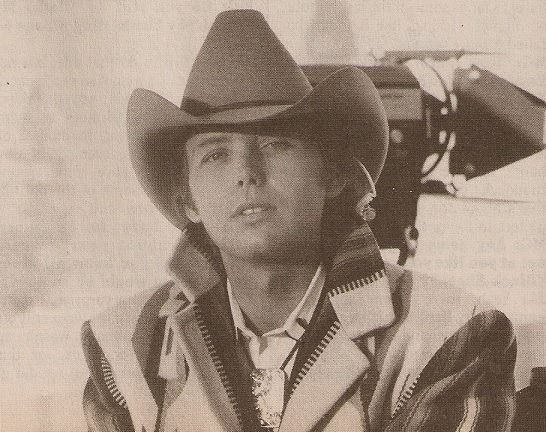
A classic heartache, shined like new chrome—Dwight Yoakam takes “Heartaches by the Number” from jukebox memory to living-room immediacy, turning an old wound into a steady, grown-up sway.
Let’s set the anchors before the feelings take over. “Heartaches by the Number” is track 10 on Guitars, Cadillacs, Etc., Etc. (released March 12, 1986), Yoakam’s debut LP with producer-guitarist Pete Anderson. It runs 3:13, and, while not issued as a single, it soon became one of the record’s signature covers. The album itself did the chart lifting—No. 1 on Billboard’s Top Country Albums, Top 10 year-end on the same survey—and Yoakam would later issue a live Roxy Theatre take on the 2006 deluxe reissue.
Before Yoakam got hold of it, the tune was already part of country’s bloodstream. Written by Harlan Howard in 1959, it first hit big twice in the same year: Ray Price took it to No. 2 on the country chart, and Guy Mitchell’s pop reading topped the Billboard Hot 100 (and reached No. 5 in the UK). Those twin lineages—Price’s Texas weep and Mitchell’s pop snap—set the poles that later interpreters navigate.
Yoakam’s version stakes its own ground. Where Price pleads and Mitchell beams, Yoakam states—a lean, Bakersfield-bred certainty that fits a singer who’d been playing honky-tonks and L.A. rock clubs in equal measure. Listen to the studio card and you’ll hear why it lands with such clean authority: Pete Anderson’s stinging Telecaster frame, Jay Dee Maness on pedal steel and Ed Black on lap steel sighing through the changes, Brantley Kearns’s fiddle carving little arabesques between Yoakam’s lines, and a rhythm section—JD Foster (bass) and Jeff Donavan (drums)—that nudges rather than pushes. It’s Los Angeles doing Bakersfield with respect, every part in service of the song.
The performance lives in the vocal choices. Yoakam leans into the title phrase without theatrics, letting the vowel in “number” hang just long enough for the steels to answer. It’s the sound of a man who’s kept score, not to wallow but to be honest about what the years have tallied. That’s why older ears gravitate to this cut. The lyric’s arithmetic—counting hurts as if they were coins in a pocket—hits different when you’ve actually walked a few nights out to the car alone. Yoakam doesn’t sweeten it; he steadies it. And when the band settles into that last chorus, the record behaves like a friend who’s done the same math and can still raise a glass.
Placed where it is—side two closer on the Reprise LP sequence of originals and carefully chosen covers—“Heartaches by the Number” also helps define the album’s argument. Guitars, Cadillacs, Etc., Etc. wasn’t nostalgia; it was renewal. By parking Howard’s standard beside his own songs and a combustible cut of “Ring of Fire,” Yoakam mapped out a future for country radio that felt rooted and modern at once. Critics noticed; the album helped mark the new traditionalist turn of the mid-’80s, with Yoakam’s version of “Heartaches” singled out for sounding tougher and edgier than earlier classics while staying true to their spirit.
For train-spotters (and for your scrapbook):
- Artist: Dwight Yoakam
- Song: “Heartaches by the Number” — 3:13; album cut (not a single) on Guitars, Cadillacs, Etc., Etc. (1986).
- Writers: Harlan Howard; landmark versions by Ray Price (Country #2, 1959) and Guy Mitchell (Hot 100 #1, 1959; UK #5).
- Personnel (album): Yoakam (vocals/acoustic), Pete Anderson (electric gtr), Jay Dee Maness (pedal steel), Ed Black (lap steel), Brantley Kearns (fiddle), JD Foster (bass), Jeff Donavan (drums), Gene Taylor/Glen Hardin (piano), with Herb Pedersen among the background voices.
- Album context: Top Country Albums #1; later Deluxe Edition (2006) adds a Roxy ’86 live version.
And the feel? That’s the secret sauce. The snare sits a breath behind the beat—reassuring, not insistent. The steels open windows rather than drape them. Anderson flickers and retreats, leaving Yoakam’s phrasing to do the talking. It’s heartbreak as craft, not spectacle; a standard reborn by refusing to oversell what it already knows. Put it on tonight and notice your shoulders drop. The song doesn’t ask you to relive every loss; it offers a rhythm that can carry them—three minutes where the ache is counted, named, and—if only for a side’s last track—made bearable.